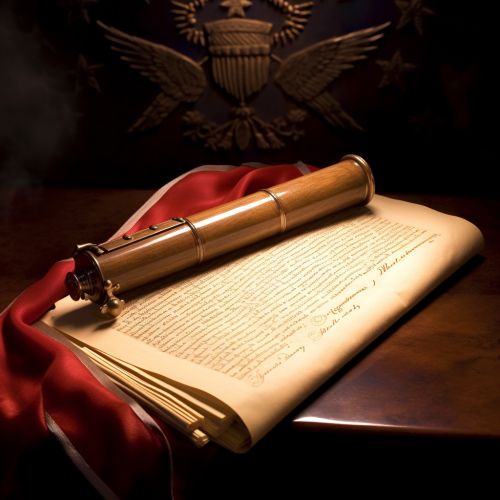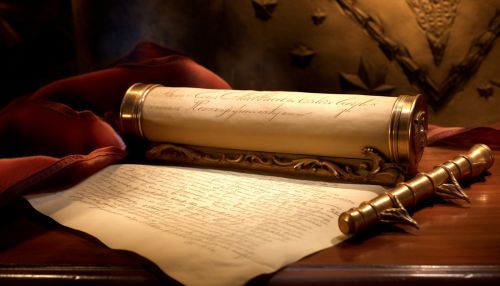Declaration of Independence
Background
The American Revolutionary War was a period of political upheaval and military conflict between Great Britain and thirteen of its North American colonies, which had declared themselves the independent United States of America. The conflict arose from growing tensions between residents of Great Britain's 13 North American colonies and the colonial government, which represented the British crown. The war resulted in the colonies becoming a new nation, the United States of America.
Drafting the Declaration
The Second Continental Congress convened in Philadelphia in the summer of 1776, in the midst of a volatile period of civil unrest. The Congress was divided on the issue of independence; some delegates were in favor, while others were not. The Congress appointed a Committee of Five to draft a declaration of independence. The committee consisted of John Adams, Benjamin Franklin, Thomas Jefferson, Robert R. Livingston, and Roger Sherman. Jefferson, considered the strongest and most eloquent writer, wrote the document primarily.


Content of the Declaration
The Declaration of Independence is a powerful document that declared the United States as a new nation, separate and distinct from the British Empire. It consists of three parts: the preamble, the indictment, and the conclusion.
The preamble outlines the fundamental principles of American self-government. It begins with the famous phrase, "We hold these truths to be self-evident, that all men are created equal, that they are endowed by their Creator with certain unalienable Rights, that among these are Life, Liberty and the pursuit of Happiness." This sentence has been called "one of the best-known sentences in the English language" and "the most potent and consequential words in American history".
The indictment section lists 27 grievances against King George III's government. These grievances provide a justification for the American Revolution and the secession from the British Empire.
The conclusion asserts the independence of the United States. It also states that the United States has the full power to levy war, conclude peace, contract alliances, establish commerce, and to do all other acts and things which independent states may of right do.
Impact of the Declaration
The Declaration of Independence had a significant impact on the world, inspiring revolutions and independence movements around the globe. It has been seen as a beacon of liberty and an expression of the fundamental principles of human rights.
